Related Research Articles

Thomas D'Arcy McGee was an Irish-Canadian politician, Catholic spokesman, journalist, poet, and a Father of Canadian Confederation. The young McGee was an Irish Catholic who opposed British rule in Ireland, and was part of the Young Ireland attempts to overthrow British rule and create an independent Irish Republic. He escaped arrest and fled to the United States in 1848, where he reversed his political beliefs. He became disgusted with American republicanism, Anti-Catholicism, and Classical Liberalism. McGee became intensely monarchistic in his political beliefs and in his religious support for the embattled Pope Pius IX.

Roxbury is a neighborhood within the City of Boston, Massachusetts.
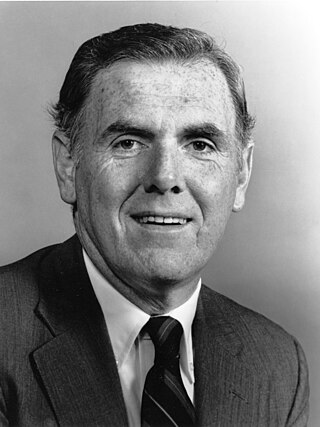
Raymond Leo Flynn is an American politician who served as the mayor of Boston, Massachusetts, from 1984 until 1993. He also served as United States Ambassador to the Holy See from 1993 to 1997.

The Boston Police Department (BPD), dating back to 1838, holds the primary responsibility for law enforcement and investigation within the city of Boston, Massachusetts. It is the oldest municipal police department in the United States. The BPD is also the 20th largest law enforcement agency in the country.
Grove Press is an American publishing imprint that was founded in 1947. Imprints include: Black Cat, Evergreen, Venus Library, and Zebra. Barney Rosset purchased the company in 1951 and turned it into an alternative book press in the United States. He partnered with Richard Seaver to bring French literature to the United States. The Atlantic Monthly Press, under the aegis of its publisher, Morgan Entrekin, merged with Grove Press in 1991. Grove later became an imprint of the publisher Grove/Atlantic, Inc.
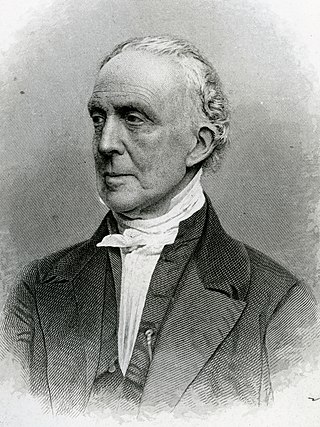
Josiah Quincy III was an American educator and political figure. He was a member of the U.S. House of Representatives (1805–1813), mayor of Boston (1823–1828), and President of Harvard University (1829–1845). The historic Quincy Market in downtown Boston is named in his honor. A panel of 69 scholars in 1993 ranked him among the ten best mayors in American history.
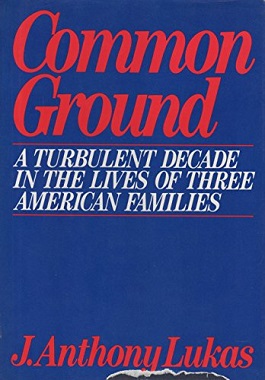
Common Ground: A Turbulent Decade in the Lives of Three American Families is a nonfiction book by J. Anthony Lukas, published by Alfred A. Knopf in 1985, that examines race relations in Boston, Massachusetts, through the prism of desegregation busing. It received the Pulitzer Prize for General Nonfiction, the National Book Award for Nonfiction, and the National Book Critics Circle Award.

Barnett Frank is a former American politician. He served as a member of the U.S. House of Representatives from Massachusetts from 1981 to 2013. A Democrat, Frank served as chairman of the House Financial Services Committee from 2007 to 2011 and was a leading co-sponsor of the 2010 Dodd–Frank Act. Frank, a resident of Newton, Massachusetts, was considered the most prominent gay politician in the United States during his time in Congress.

John Prescott Bigelow was an American politician, who served as a member of the Massachusetts House of Representatives, Secretary of State of Massachusetts, and most prominently as the twelfth mayor of Boston, Massachusetts from 1849 to 1851. Bigelow was born in Groton, Massachusetts, in Middlesex County.

Joseph Milner Wightman was an American politician who, from 1861 to 1863, served as the seventeenth Mayor of Boston, Massachusetts.
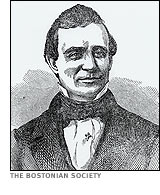
Francis Tukey was the City Marshal of Boston, Massachusetts from 1846 to 1852 and a member of the California State Assembly.
This article is a timeline of the history of the city of Boston, Massachusetts, USA.

The Boston mayoral election of 1993 occurred on Tuesday, November 2, 1993, between Acting Mayor Thomas Menino and State Representative James T. Brett. Menino was elected to his first term.
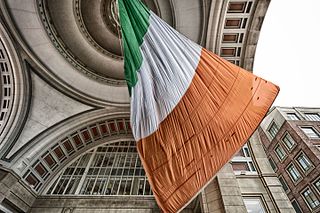
People of Irish descent form the largest single ethnic group in Boston, Massachusetts. Once a Puritan stronghold, Boston changed dramatically in the 19th century with the arrival of immigrants from other parts of Europe. The Irish dominated the first wave of newcomers during this period, especially following the Great Irish Famine. Their arrival transformed Boston from an Anglo-Saxon, Protestant city into one that has become progressively more diverse. These people hired Irish as workers and servants, but there was little social interaction. In the 1840s and 50s, the anti-Catholic, anti-immigrant Know Nothing movement targeted Irish Catholics in Boston. In the 1860s, many Irish immigrants fought for the Union in the American Civil War, and that display of patriotism helped to dispel much of the prejudice against them.

The 1891 New Orleans lynchings were the murders of 11 Italian Americans and Italian immigrants in New Orleans by a mob for their alleged role in the murder of police chief David Hennessy after some of them had been acquitted at trial. It was the largest single mass lynching in American history. Most of the lynching victims accused in the murder had been rounded up and charged due to their Italian ethnicity.

Irish Americans are ethnic Irish that live in the United States and are American citizens. Most Irish Americans today are descendants from immigrants who moved into America during the 19th century. Currently, there are about 36 million ethnic Irish who reside in the United States, making the third largest ancestry group. Being first German Americans and second Mexican Americans respectively.

Patrick Joseph McCarthy was the 24th mayor of Providence, Rhode Island, and the first Providence mayor born in a foreign country.
Not all of the 5 million Italians who immigrated to the United States between 1820 and 1978 came through Ellis Island. Many came through other ports, including the Port of Boston. Exactly how many stayed in Boston is not known, but it was enough to make Italians the second largest ancestry group in Boston, after the Irish. Most settled initially in the North End; others settled in East Boston, the West End, Roxbury, and other neighborhoods.

In the 1855 Chicago mayoral election, Know Nothing candidate Levi Boone defeated Democratic incumbent Isaac Lawrence Milliken by a 5.75% margin.

From the beginning of the city's history as the western bank of Springfield, Irish families have resided in and contributed to the development of the civics and culture of Holyoke, Massachusetts. Among the first appellations given to the city were the handles "Ireland", "Ireland Parish", or "Ireland Depot", after the village was designated the 3rd Parish of West Springfield in 1786. Initially occupied by a mixture of Yankee English and Irish Protestant families, many of whom belonged to the Baptist community of Elmwood, from 1840 through 1870 the area saw a large influx of Irish Catholic workers, immigrants to the United States, initially from the exodus of the Great Famine. During that period Irish immigrants and their descendants comprised the largest demographic in Holyoke and built much of the early city's infrastructure, including the dams, canals, and factories. Facing early hardships from Anti-Irish sentiment, Holyoke's Irish would largely build the early labor movement of the city's textile and paper mills, and remained active in the national Irish nationalist and Gaelic revival movements of the United States, with the Holyoke Philo-Celtic Society being one of 13 signatory organizations creating the Gaelic League of America, an early 20th century American counterpart of Conradh na Gaeilge.
References
- ↑ Puleo 2010, p. 52-4.
- ↑ "Erin go Barney". The Boston Globe. March 15, 2011.
- ↑ Stevens, Peter F. The Hidden History of the Boston Irish. pp. 42–45.
- ↑ BPD Chronologist